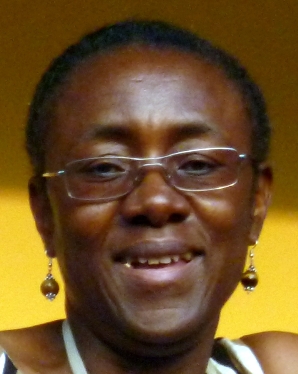Ella Nyakunu of SABINA Accepted to AAAS-TWAS Science & Diplomacy Summer Course

SABINA Administrator Ms. Ella Nyakunu has been accepted to the prestigious AAAS-TWAS Course on Science and Diplomacy, which will be held from 8-13 June at TWAS Headquarters in Trieste, Italy.
Background
Two trends are becoming clear in the early part of this century; the majority of challenges facing society have an international or global context; and science, technology and their applications underpin the cause or the cure to these challenges. As a result science and technology are becoming ever more embedded into the foreign policies and international relations of nations. At the same time, cooperation in science and technology is increasingly benefiting from both the technical and political interactions between states. For example, establishing such large scale projects as ICTP, ITER, CERN and SESAME*, require both scientific exchange and diplomatic interactions. In addition to facilitating cooperative multilateral projects, science cooperation can play an important role in establishing trust and building bridges between nations. Throughout the Cold War, for example, science, health and space cooperation provided one of the few ways for constructive interaction between the East and the West. As a result, many new scientific institutions formed, providing important focal points for dialogue and understanding.
Given the growing role of science and technology in international relations, AAAS and TWAS formed a partnership in 2011 designed to focus on science diplomacy and engagement between the North and the South. Part of this initiative includes a short-course on science diplomacy.
*Abdus Salam International Centre for Theoretical Physics; International Thermonuclear Experimental Reactor; European Organization for Nuclear Research; Synchrotron-light for Experimental Science and Applications in the Middle East.
The Course
The AAAS-TWAS Course on Science and Diplomacy course will expose participants to some key contemporary international policy issues relating to science, technology, environment and health, while providing an overview of how technical information has contributed to different policy developments and international structures. Another focus of the course will be a better understanding of and appreciation for the roles governments, international organizations, and the private sector in complex science-based issues, and how different governance structures are developed to address the needs and involvement of these different stakeholders.
The course will also encourage active interaction between and among participants as they work on a project that builds on the case studies developed through the week. The project will be a short summary memo on a topic or theme related to science, health or technology and their applications that has relevance to the international policy community.
It has been designed for scientists interested in connecting their research to international policy making, policymakers interested in some of the central science based themes that might influence their work, research institution administrators, and research funders focused on identifying ways to build international networks.
April 2014


.png_pagespeed_ic_F3J9Nok1Eh.png)
.png)
